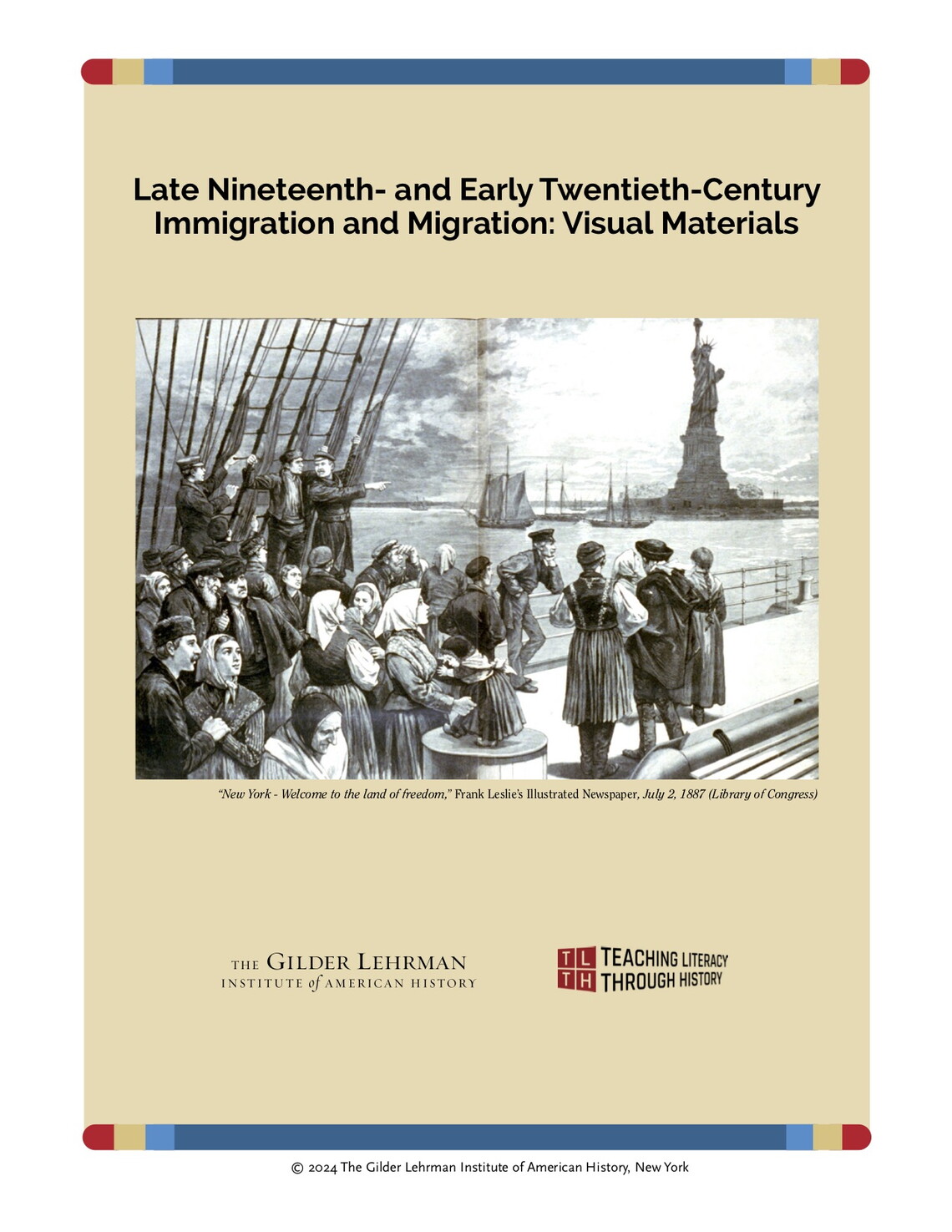Lesson by Tim Bailey
Essay by Grace Peña Delgado, University of California, Santa Cruz
Grade Level: 3–5
Number of Class Periods: 3
Primary Era: The Rise of Industrial America, 1877–1900

In the three lessons in this unit, students will explore European immigration to the United States, the Great Migration, and the deportation of Mexicans and Mexican Americans in the late nineteenth and early twentieth centuries. The visual sources that they examine were created contemporaneously to historical events or to memorialize those events; some are primary sources and some are secondary sources. Students’ comprehension will be assessed through activity sheets and a final presentation.
Lesson Plan Author: Tim Bailey
Historical Background Essay by: Grace Peña Delgado, University of California, Santa Cruz
CCSS.ELA-Literacy.RI.4.7: Interpret information presented visually, orally, or quantitatively (e.g., in charts, graphs, diagrams, time lines, animations, or interactive elements on Web pages) and explain how the information contributes to an understanding of the text in which it appears.
CCSS.ELA-Literacy.W.4.1 and 1.B: Write opinion pieces on topics or texts, supporting a point of view with reasons and information; B. Provide reasons that are supported by facts and details.
CCSS.ELA-Literacy.SL.4.1 and 1A–C: Engage effectively in a range of collaborative discussions (one-onone, in groups, and teacher-led) with diverse partners on [grade-level] topics and texts, building on others’ ideas and expressing their own clearly; A. Come to discussions prepared, having read or studied required material; explicitly draw on that preparation and other information known about the topic to explore ideas under discussion; B. Follow agreed-upon rules for discussions and carry out assigned roles; C. Pose and respond to specific questions to clarify or follow up on information, and make comments that contribute to the discussion and link to the remarks of others.
What promises has the United States made to immigrants?
What have people who moved gained by immigrating to or migrating within the United States?
What hardships have challenged people who moved to or within the United States?
What hardships have challenged people who were forced to leave the United States?
“Welcome to All,” cartoon by J. Keppler, Puck, April 28, 1880
“The Americanese Wall,” cartoon by Raymond O. Evans, Puck, March 25, 1916
“New York - Welcome to the Land of Freedom – An Ocean Steamer Passing the Statue of Liberty: Scene on the Steerage Deck,” Frank Leslie’s Illustrated Newspaper, July 2, 1887
“Immigrants Just Arrived from Foreign Countries - Immigrant Building, Ellis Island, New York Harbor,” stereograph, Underwood & Underwood, 1904
“Family in Room in Tenement House,” Jessie Tarbox Beals for Jacob Riis, ca. 1910
Jacob Lawrence, The Migration Series Panel No. 1: During World War I there was a great migration north by southern African Americans, 1940–1941. Casein tempera on hardboard, 12 x 18 in., The Phillips Collection, Washington, DC
“500,000 Mexican Americans Deported,” segment from the Great Wall of Los Angeles by Judith Baca © 1976